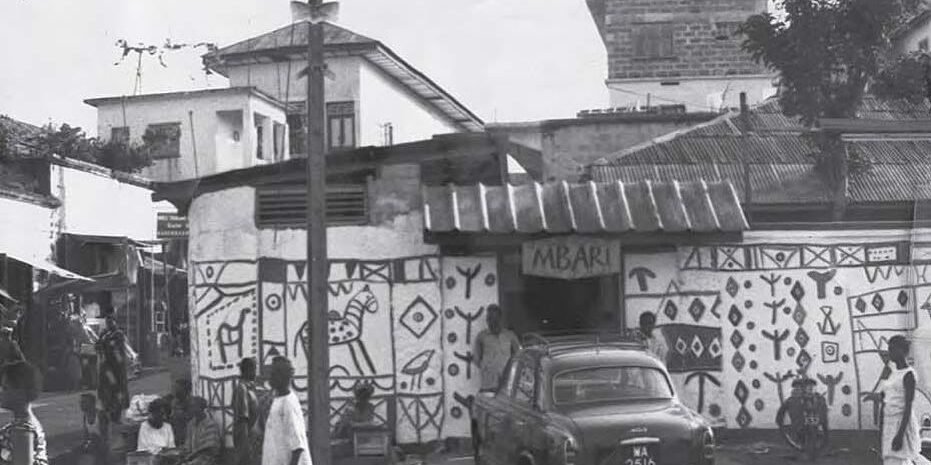History Founded in 1961 by a diverse group of writers, visual artists, musicians, and actors, and active throughout the 1960s, the Mbari Club was originally located in Ibadan's Dugbe Market, on the site of an old Lebanese restaurant that was converted into an open-air performance venue, an art gallery, a library, and an office. While celebrating the creativity of Nigerian talent in the newly independent nation, Mbari "was an international environment, attracting artists from across Africa and beyond". The premieres of Soyinka's The Trials of Brother Jero and Clark's Song of a Goat were staged at Mbari, and internationally renowned artists were also invited to play or exhibit their work, including Langston Hughes, Jacob Lawrence and Pete Seeger. The club also initiated writing competitions. As recalled by Lindsay Barrett, secretary of the Mbari Club from 1966 to 1967: "We were in a historic, literary setting ... when the civil war 1967–70 broke out and disintegrated everything."
Mbari Mbayo In 1962 a similar club based on the same concepts, called Mbari Mbayo (the name this time reflecting a Yoruba phrase meaning: "Were I to see, I would rejoice" or "When we see it, we shall be happy"), was developed in Oshogbo — about 50 miles northeast of Ibadan — by dramatist Duro Ladipo together with Beier and Mphahlele. Ladipo converted his father's house into an art gallery and a theatre, where he produced his plays. Artists who emerged from the Mbari Mbayo Club in Oshogbo include Twins Seven Seven, Jimoh Buraimoh and Muraina Oyelami.
Mbari-Enugu The Mbari-Enugu Club of Eastern Nigeria was established in 1963 and like Mbari Mbayo was particularly a platform for sculpture, painting and literary performance.
Selected list of people associated with The Mbari Club Legacy In June 2016, the Ibadan Literary Society (IBS) was launched, modelled after the Mbari Club. In December 2019, The Mbari Clubs and Nigerian Modernism, an exhibition focusing on the Mbari Clubs in Ibadan and Osogbo, took place at the Barbican Art Gallery in London.
Further reading James Currey, "Literary Publishing After Nigerian Independence: Mbari as Celebration", Research in African Literatures, Vol. 44, No. 2, (In)Visibility in African Cultures / Zoe Norridge, Charlotte Baker, and Elleke Boehmer, Guest Editors (Summer 2013), pp. 8–16. Olabode Ibironke, "The Ibadan Origins of Modern African Literature: African Writers Series, Mbari Club & the Social Character of Ibadan", History Compass, Vol. 13, Issue 11, pp. 550–559, November 2015. Chika Okeke-Agulu, Postcolonial Modernism: Art and Decolonization in Twentieth-Century Nigeria (Durham, NC: Duke University Press, 2015)
References External links "Mbari Club" at Library of Congress. ’Tunji Olaopa, "The spirit of Mbari Club", Punch (Nigeria), 23 September 2018.
